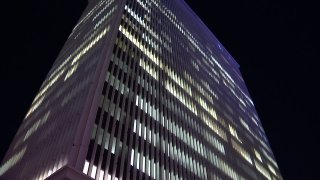
This story has been updated with a statement from San Diego Mayor Kevin Faulconer's office.
An investigation commissioned by the city of San Diego into its $127 million lease-to-own deal of a downtown high-rise found that the city failed to conduct cursory inspections of the property before making the landmark deal.
Also, the city allowed the parties involved in the sale of the property to be absolved from any liability from hazards inside 101 Ash St., despite the fact that all parties, aside from the city, earned substantial profits from the sale of the building.
The forensic investigation into the purchase of 101 Ash, obtained by NBC 7 Investigates, was commissioned by Mayor Kevin Faulconer earlier this year amid numerous reports and legal claims that the city proceeded with a large-scale renovation and later moved employees into the building despite fire-safety issues, the presence of asbestos, and inadequate heating and air-conditioning systems.
On July 23, NBC 7 Investigates published a comprehensive review of the history of 101 Ash, including the warning signs that were present before the city purchased the building, and the warning signs the city ignored after purchasing it. The forensic investigation confirmed many of those findings.
THE FINDINGS
The reports, which have not yet been released to the public, were conducted by three outside law firms.
Local
The Santa Ana-based real estate law firm Burke William Sorensen examined the real estate transaction between the city, quasi-broker Cisterra Partners and the building’s owner Sandor “Sandy” Shapery, as well as the due diligence the city conducted before signing the agreement.
The second firm, Procopio Cory Hargreaves & Savitch, focused on the liability issues that the city faces and whether the city has any legal recourse in the transaction, which is set to cost taxpayers $202 million with maintenance and upkeep over the next 20-years.
Lastly, Hugo Parker -- the same firm that is currently representing the city in dozens of legal claims of contractors and employees claiming they were put in harm’s way -- looked at the city’s asbestos mitigation and whether it was conducted properly.
According to the reports, trouble began even before the city agreed to move forward with the purchase of 101 Ash in late 2016, most notably the failure to review public documents and other information about conditions inside the former Sempra Building.
“Based on this office’s review of the available documents and information, we conclude that the city’s due diligence was likely deficient in a key respect – namely, its failure to follow up on the available records concerning asbestos on the property.”
One of the reports stated, “The city likely had sufficient information to mandate further investigation of the asbestos at the property as a matter of reasonable prudence,” adding:
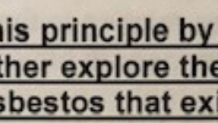
Examples of those deficiencies: an unwillingness by city staff to review public testimony and other documents drafted years before the purchase in which Sempra had disclosed about seismic issues and asbestos inside the building.
One of those disclosures was contained in public testimony given by Sempra real estate consultant James Seifert when he testified before the California Public Utilities Commission, as first reported by NBC 7 Investigates.
The problems didn’t end there.
The forensic investigation also took issue with the “broker-like role” that the city gave to Cisterra Partners, the business that purchased the building from Shapery and then leased it to the city.
Cisterra agreed to buy the building from Shapery with the understanding that it would immediately lease the building, with an option to buy, to the city. The investigation found issues with Cisterra’s role and, more importantly, the fact the city relied on Cisterra to review the property.
As reported by NBC 7, the city and Shapery had tried for nearly a year to enter into a deal prior to the subsequent sale. And as those negotiations failed, the real estate developer Cisterra Partners entered the equation.
“This office has concerns regarding the broker-like role that Cisterra played in the city’s acquisition of the property and the city’s nearly exclusive reliance on the reports and information provided by Cisterra in conducting its due diligence,” stated the report, which added:
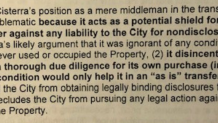
Due diligence, or a lack thereof, was not a problem only with the purchase agreement but the lease agreement as well. The reports found the city attorney’s office failed to spot what were clear, “exculpatory” signs that let both Cisterra and Shapery off the hook for much-needed repairs.
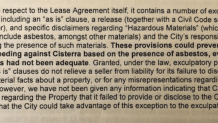
“In this office’s opinion, the terms of the lease agreement were, in fact, disproportionately unfavorable to the city, on the specific issue of the exculpatory provisions in favor of Cisterra,” the report goes on to state.
Another misstep came as one of the clauses, according to the report, found little way out for the city to get a better price: “The city also accepted a clause in the lease that effectively prevents the city from refinancing the transaction without the likelihood of incurring a huge financial penalty …”
The investigation into the purchase didn’t stop there.
The clauses releasing liability, the firms determined in the reports, should have prompted the city to conduct its own internal review of the building before agreeing to purchase it: "The city likely should have commissioned its own property-condition reports in light of the strong exculpatory provisions in the lease agreement.”
Added the report, “Overall, these facts give rise to the potential that Cisterra received a better deal from the city than the city could have otherwise negotiated ... and Cisterra made a substantial profit merely by acting as a conduit.”
Issues with the purchase and lease agreement were not the only problems, however: The law firms found that the city proceeded with large-scale renovations of 101 Ash even after learning of the presence of asbestos and other issues inside: “[The city failed] to conduct city-commissioned analysis to further explore the impact that remodeling the property would have on the asbestos that existed on the property.”
In addition, fire officials also alerted the city about the asbestos inside. In an email from Chief Deputy Fire Marshal Anthony Tosca to Fire Marshall Douglas Perry, Toscato wrote, “It came to our attention that there are no plans to remediate the asbestos in the air return system. Apparently it’s not in the budget??? There’s also asbestos particles and residue from the ceiling and exposed tile that has been disturbed.… I don’t think it’s being mitigated appropriately and wanted to bring it to your attention.”
The investigation also found that the city was made aware of major fire risks inside the building, even as it prepared to move employees in.
As reported by NBC 7 Investigates, the building’s fire system was old and the emergency generators were overburdened. Yet despite this, the city moved employees into the building, doing so despite the fact that the fire alarm system was not working, leaving employees at risk.
“As recently as April 2020, [property management firm CBRE] reported to the city that the building alarm system did not interface with any fire suppression prevention systems at 101 Ash, some fire-rated doors were likely still missing, and there is a lack of any stairwell pressurization systems,” read the investigation report.
On July 28, 2020, the San Diego City Council discussed the legal claims filed by contractors and employees over asbestos contamination as well as any potential for the city to file a lawsuit against some of the contractors for their role in failing to mitigate the asbestos.
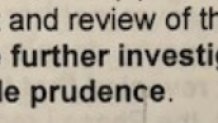
All this as 101 Ash Street sits vacant and taxpayers continue to pay tens of thousands of dollars in rent per day.
Following the publication of this article, Mayor Kevin Faulconer issued the following statement and provided a copy of one of the three reports.
“I called for this independent review because City Hall has a very long and troubled history with managing its property and sweeping problems under the rug, and I didn’t want that culture to persist. This report could have been put on a shelf or delayed so other people would have to deal with it, but it is my responsibility to share information with the public and propose corrective actions that get to the root of the problem.
The City will pursue all legal and financial options to recoup costs, hold accountable the contractors who worsened the building’s condition, and implement new levels of accountability throughout internal operations.
We are working with a multidisciplinary team of outside legal and real estate experts with the goal of repositioning the building's finances so the City can fulfill the original goals of acquiring this property at no net cost to taxpayers. The City's strong credit rating and financial health will help us in this effort.
I have also directed a complete overhaul of how City departments handle property because while the City does many things very well it’s clear that complicated real estate management is not always one of them.
We cannot stay the current course on this project, and now that we know how we got here we can create a new path forward. Next week the City Council will be given several options on how to proceed to ensure we protect City employees, taxpayers, and the public.”
Late Wednesday, San Diego Mayor Kevin Faulconer released one of the three reports to council members, adding that "while the City does many things very well, it’s clear that complicated real estate management is not always one of them."
"This report could have been put on a shelf or delayed so other people would have to deal with it, but it is my responsibility to share information with the public and propose corrective actions that get to the root of the problem," a statement from Mayor Faulconer reads.
Next week, Faulconer's office says several options will be presented to the city council on "how to proceed to ensure we protect City employees, taxpayers, and the public.”
"The City will pursue all legal and financial options to recoup costs, hold accountable the contractors who worsened the building’s condition, and implement new levels of accountability throughout internal operations."
Update – July 30, 2020: After publishing this story, Mayor Kevin Faulconer released one of the three reports referenced in this article, saying it was his “responsibility to share information with the public,” and that the city of San Diego has a “very long and troubled history” of “sweeping problems under the rug, and I didn’t want that culture to persist.”
While this was said, though, the three law firms that produced these reports, along with the San Diego City Attorney’s office wrote NBC 7, indicating their belief that the station is in possession of confidential information. All three firms have requested that we destroy any materials we are in possession of, and to stop reporting on the information within, including the two reports that the Mayor has not released publicly. We respectfully declined, citing the public’s interest in this purchase.
Editor's Note: A previous version of this story stated the total price of the city's purchase of 101 Ash Street was $202 million. A city spokesperson clarified the $202 million amount included operational and maintenance costs in addition to lease payments over the next 20 years. The article above has been updated to reflect this.



